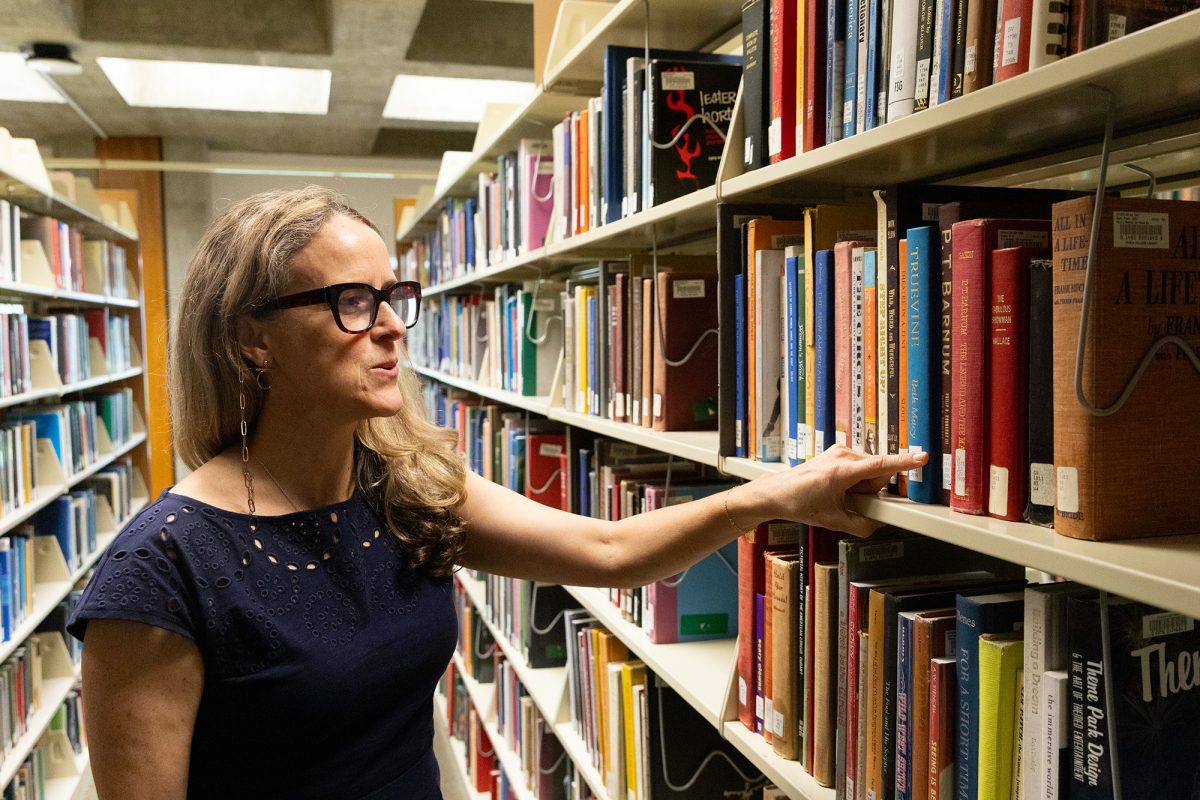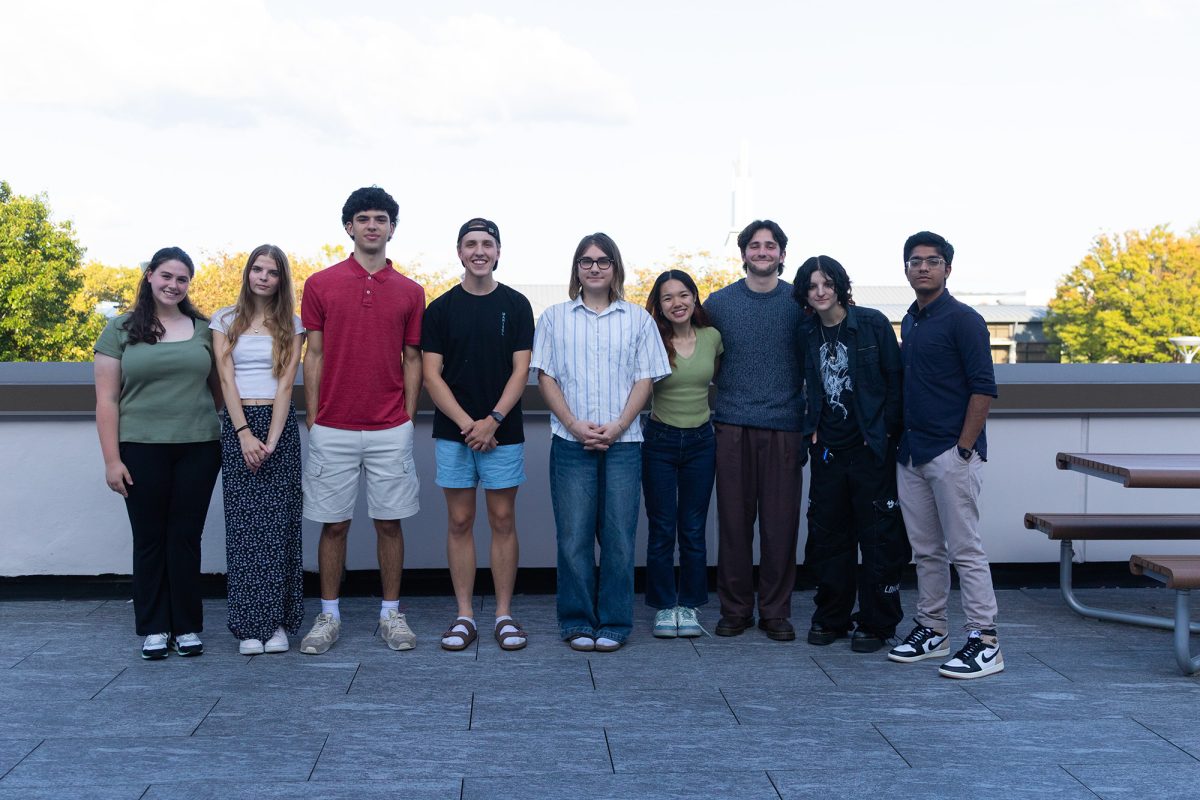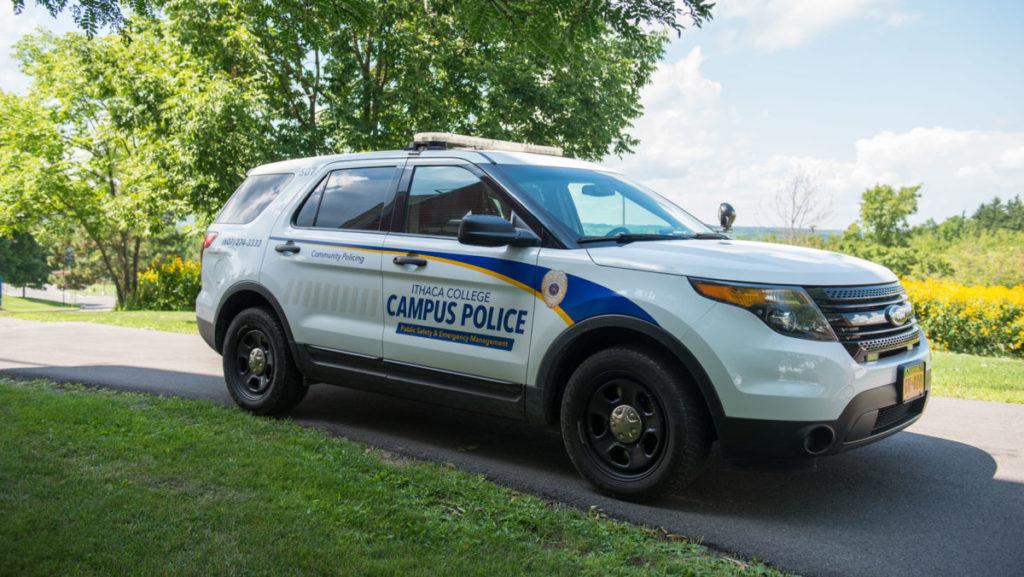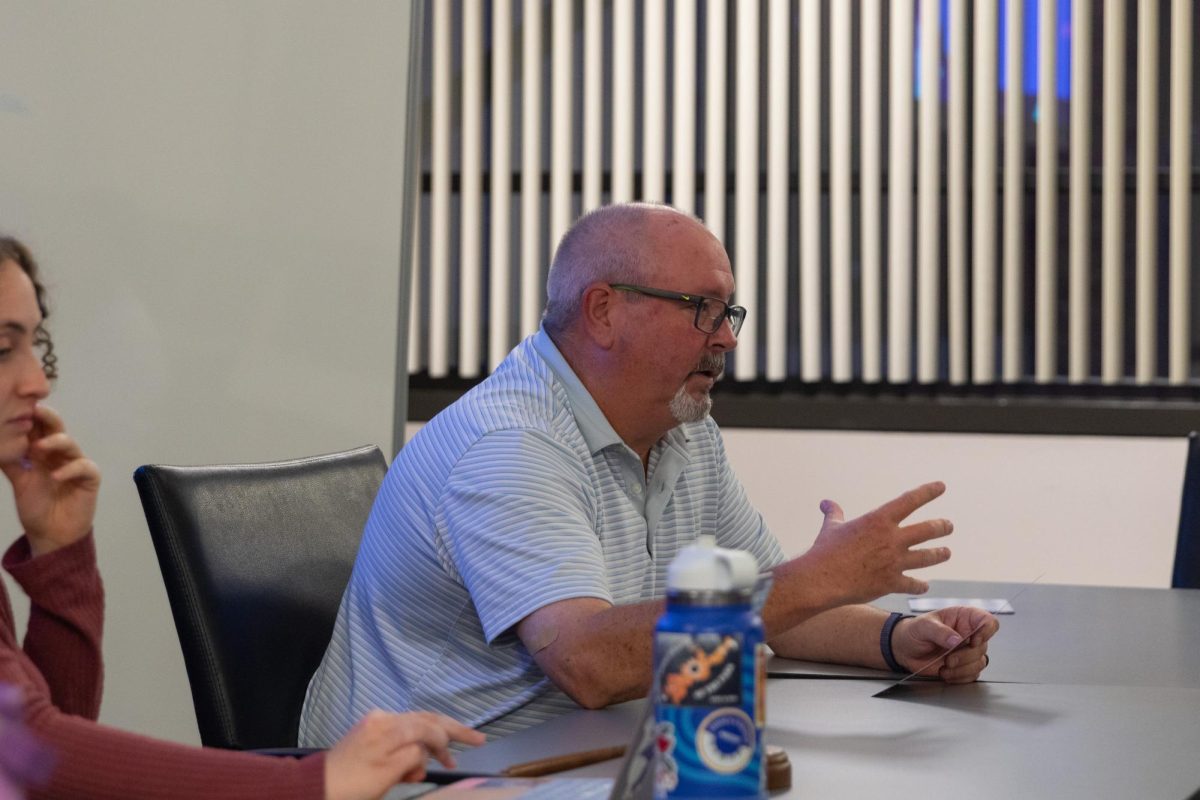Two Ithaca College librarians, Jim Bondra, former business librarian, and Karin Wikoff, former electronic and technical services librarian, both retired Aug. 25. The current librarians have restructured the Ithaca College Library to account for the losses amid a turbulent time for libraries across the United States.
The college’s librarians, previously assigned to specific schools with titles that reflected that, have had their job titles updated, all becoming research and instruction librarians. Each of the six librarians still have their specialization, but now serve two or three of the schools, with at least two assigned to each school.
College Librarian Laura Kuo said traditionally academic libraries have a liaison model, where specific librarians cover certain subjects, but that Bondra’s retirement inspired a change in the librarian structure and the implementation of a new structure called the team model.
“I see us librarians as information specialists, not necessarily subject specialists,” Kuo said. “We have this skill set to be able to deconstruct whatever information system or tool we’re looking at and [are] able to help students with it.”
Kuo said a change in library structure was discussed before the COVID-19 pandemic because different schools’ librarians had drastically different workloads. Kuo said the new model was designed with the idea that a smaller team could more effectively split the total workload by not specializing in a certain school.
“We’re all having to communicate and share our own nuanced experiences, skills and tricks within our discipline with all of the other disciplines,” Kuo said.
Cathy Michael, research and instruction librarian at the college, said artificial intelligence is one of the newest challenges librarians face. She said she compares the new advancements with AI to when library systems switched to computers and digital systems.
“There’s new jargon that I’m getting used to, like ‘prompt engineering’ and ‘hallucinations,’’’ Michael said. “I don’t hate it, I see the problems and I think you just need to educate yourself. What are the intellectual problems? Property problems? What are the plagiarism issues?”
Kuo said a challenge she and the library faced going into this academic year was dealing with a flat budget. A flat budget is a budget that does not change or increase year-to-year. Kuo said the library has many subscriptions and contracts with different databases, such as JSTOR, EBSCO and Gale, which increase in price each year.
“That’s just how publishing works, there’s always an increase,” Kuo said. “There’s a lot of work being done to make sure that we’re providing and still able to connect students, faculty and staff with the right resources under a tighter budget.”
The IC library is not the only library dealing with a tight budget. On March 14, President Donald Trump signed an executive order directing sweeping budget cuts at the Institute of Museum and Library Services. The IMLS is a federal agency that provides funding grants to libraries and museums across the country. The college’s library does not receive IMLS grants; however, Project Look Sharp, the college’s nonprofit media literacy program, received one in 2023. The stated goal of the executive order was to “reduce the performance of their statutory functions and associated personnel to the minimum presence and function required by law.”
The IMLS was one agency of many that received funding cuts from the Trump administration and the Department of Government Efficiency since he came into office in January.
Kat Savage, librarian and department head of youth services at Tompkins County Public Library, said funding being pulled on a federal level puts more strain on state and local economies and taxpayers in order to fund their libraries. Savage said not only will the Trump administration’s funding cuts affect libraries, but increased tariffs and other economic policies will too.
“There’s only so much money to go around,” Savage said. “Tompkins County Public Library has a lot of support on a local level, but that isn’t to say that things [will not] get more dire in other areas.”
Michael said to help local libraries, people have to show up for them, become members, speak to their local representatives about the library and get involved in local school boards to prevent book banning and censorship.
“[The library is] an equalizer that provides databases and resources to the community in addition to books,” Michael said. “If library funding is removed, I’m worried about censorship of all kinds.”
Public libraries offer more than books; they also act as centers of community and safety nets for vulnerable members of local communities. Judd Karlman, librarian and department head of Adult Services at TCPL, said he and his team offer a range of community services, such as book clubs, a makerspace and resources for digitizing family records.
“[The library] is a rare environment where there isn’t an omnipresent capitalist pressure to pay your way,” Karlman said. “It’s mostly paid with Tompkins County taxes, so our patrons have already paid and they don’t have to think about that.”
Savage said TCPL offers a number of programs and resources for young kids and teens. There are live readings for babies and toddlers, summer chess programs, Nintendo Switch systems and age-restricted areas dedicated to teenagers.
“When you’ve got the freedom to pursue your interests as a child, it goes a long way to getting ready to be an awesome adult in the future,” Savage said. “Here in Ithaca we have some amazing spaces … and I see the library as an important part of that.”
Additionally, TCPL provides support to the local unhoused community and people struggling with addiction. Public libraries are open, free spaces where anyone can come for shelter or to access the internet, electricity and other resources.
“The library is a really good barometer for what’s happening in the community,” Karlman said. “The opioid crisis is a challenge in our community and we see that in patrons who are struggling with addiction and are in various stages of recovery. … We do everything we can and if we can’t help someone, then we call someone who can.”
Karlman said TCPL received a harm reduction grant as part of New York state’s Opioid Settlement Fund, allowing them to offer free Narcan and fentanyl test strips. The grant totaled $37,500 and provided these resources, as well as Narcan training for the librarians and staff.
“I have been out in the community at outreach [events] and I’ve heard people say that their lives have been saved because people in the library were doing harm reduction,” Karlman said. “When there’s a tough day, the thing I always come back to is, ‘It was a tough day, but who did I help today?’ That’s the thing that keeps us all going.”
The college library also provides resources beyond books, like research consultations and free academic databases. Kuo said she wishes more students were aware of the support and services offered by the college’s librarians. In the library’s annual report from the 2024-25 academic year, librarians answered 1,047 reference questions and completed 314 scheduled research consultations. She said empowering students and helping them find the information they need is one of the best parts of her job.
“Librarians [are] really smart and really good at helping you navigate the information world in a gentle, kind and thoughtful way,” Kuo said. “It’s very empowering to be a librarian and so helpful to empower others to become future citizens who are responsible and use information effectively and efficiently in our democratic society.”









